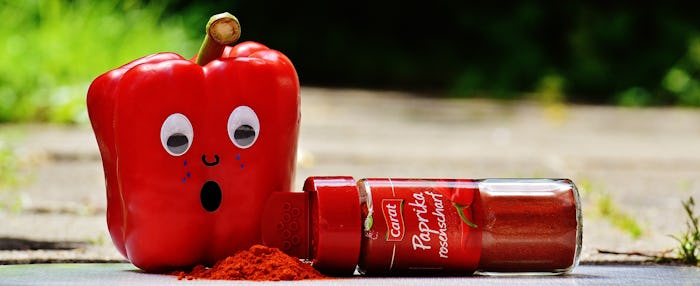Love it or loathe it, April Fools' Day is on its way. Although the holiday lends itself well to online pranks, its origins are rooted deep in history. With this in mind, how did April Fools' Day begin, anyway? There are many theories, but the exact beginnings of this holiday are still uncertain. Calendar miscalculations, ancient Roman festivals, or old celebrations centering around the first day of spring may offer an explanation.
To kick things off, let's consider the most common explanation for April Fools' Day: a long-ago calendar change. According to National Geographic, it's possible that France shifted its calendar to make the new year begin in January, instead of its typical springtime start. (And I thought Daylight Saving Time was rough.) Because this change occurred in the 1500s, when communication was still slow at best, people in rural areas continued to celebrate the new year in spring, and they became known as April fools, as further explained in the aforementioned National Geographic article. It was a way to make fun of people who were behind the times, so to speak.
This story of the change from Julian to Gregorian calendar use, and its resulting confusion, is likely the most popular explanation of the holiday's origins. However, it's difficult to say with certainty whether this is the actual history. In fact, the esteemed Snopes.com lists this calendar mishap origin of April Fools' Day as a legend, not fact. If nothing else, it makes for an interesting and convincing story.
There are, however, plenty of other potential explanations for the history behind April Fools' Day. According to the Museum of Hoaxes, springtime renewal festivals have been celebrated in almost every culture, and many of these, such as the Feast of Fools, had a mocking, joking spirit. (Think: naughty parodies of solemn church rituals.) One celebration in particular is often looked at as the forerunner to April Fools' Day, and that is the Festival of Hilaria. As explained by TIME magazine, the Greco-Roman Festival of Hilaria, celebrated in late March, included masquerades and jokes. It's easy to picture the ancient Romans slapping "kick me" signs (or their equivalent) on one another's backs.
Whatever its origins, it looks like April Fools' Day is a holiday with serious staying power. Basically, the springtime season seems to awake a spirit of mischievous fun in many people, and it has done so for hundreds of years. So even if you do fall for a fake Facebook post this April Fools' Day, remember that you're taking part in an old (if sometimes annoying) tradition.
